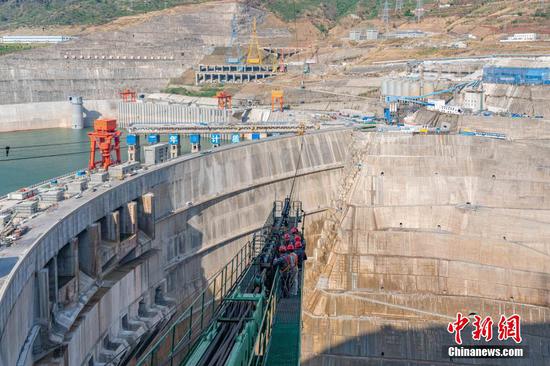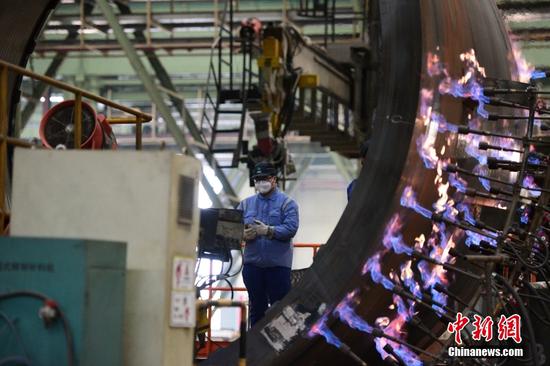The U.S. Federal Reserve's action to raise interest rate faster than expected would lead to financial "complexities" for Asia economies, especially those with debt in foreign currency, an International Monetary Fund (IMF) official said Monday evening.
The shock from the Russia-Ukraine conflict comes at a time when "the recovery from the pandemic is still incomplete and global financial conditions are tightening," Anne-Marie Gulde-Wolf, acting director of the IMF's Asia and Pacific Department, said at a virtual press conference.
"Monetary tightening in advanced economies," among other things, is leading to higher interest rates in Asia, "placing a further drag on growth," Gulde-Wolf told reporters.
There are various channels that Fed rate hikes could impact Asia, according to the IMF official. "The first one is the trade channel, which could actually be positive": appreciating U.S. dollar leads to higher demand and more exports from Asia to the Unite States, she said.
"But through the financial channels, there will be complexities that arise for Asia from higher funding costs, especially for those that have debt in foreign currency," Gulde-Wolf said.
Asia's debt now accounts for nearly 40 percent of the global total, compared with 25 percent in 2007, according to IMF estimation. Noting that Asia is now the region with the largest debt globally, Gulde-Wolf said there is corporate and sovereign debt denominated in foreign currency, both of which would be affected.
The IMF official, however, noted that Asia is "better prepared" nowadays than at the time of the "taper tantrum" in 2013, when U.S. Fed signaled sooner-than-expected financial tightening, investors dumped financial assets in emerging markets en masse and moved their capital to safe-haven assets in developed markets, sparking market disruption and a surge in global borrowing costs.
"Most countries have higher reserves, better monetary frameworks and are generally more attuned to the risk," Gulde-Wolf said, while urging central banks to remain "watchful" and "nimble" in their policy actions.
According to the IMF's latest forecast, Asian GDP is expected to grow by 4.9 percent in 2022, 0.5 percentage point less than projected in January, and slower than last year's growth rate of 6.5 percent.
"Despite the downgrade, Asia remains the world's most dynamic region, and an important source of global growth," Gulde-Wolf said.
For China, the IMF revised down 2022 growth forecast to 4.4 percent compared to 4.8 percent in January.
The revision reflects a sizable negative impact from the conflict in Ukraine and localized COVID outbreaks and lockdowns. These negative effects are partly offset by the positive impact of policy stimulus, she noted.
The IMF official also warned of risks for Asian economies over the medium term. "The potential fragmentation of supply chains and geopolitical tensions are big risks to a region that has benefitted from globalization and relative peace over the last few decades," she said.


















































 京公网安备 11010202009201号
京公网安备 11010202009201号